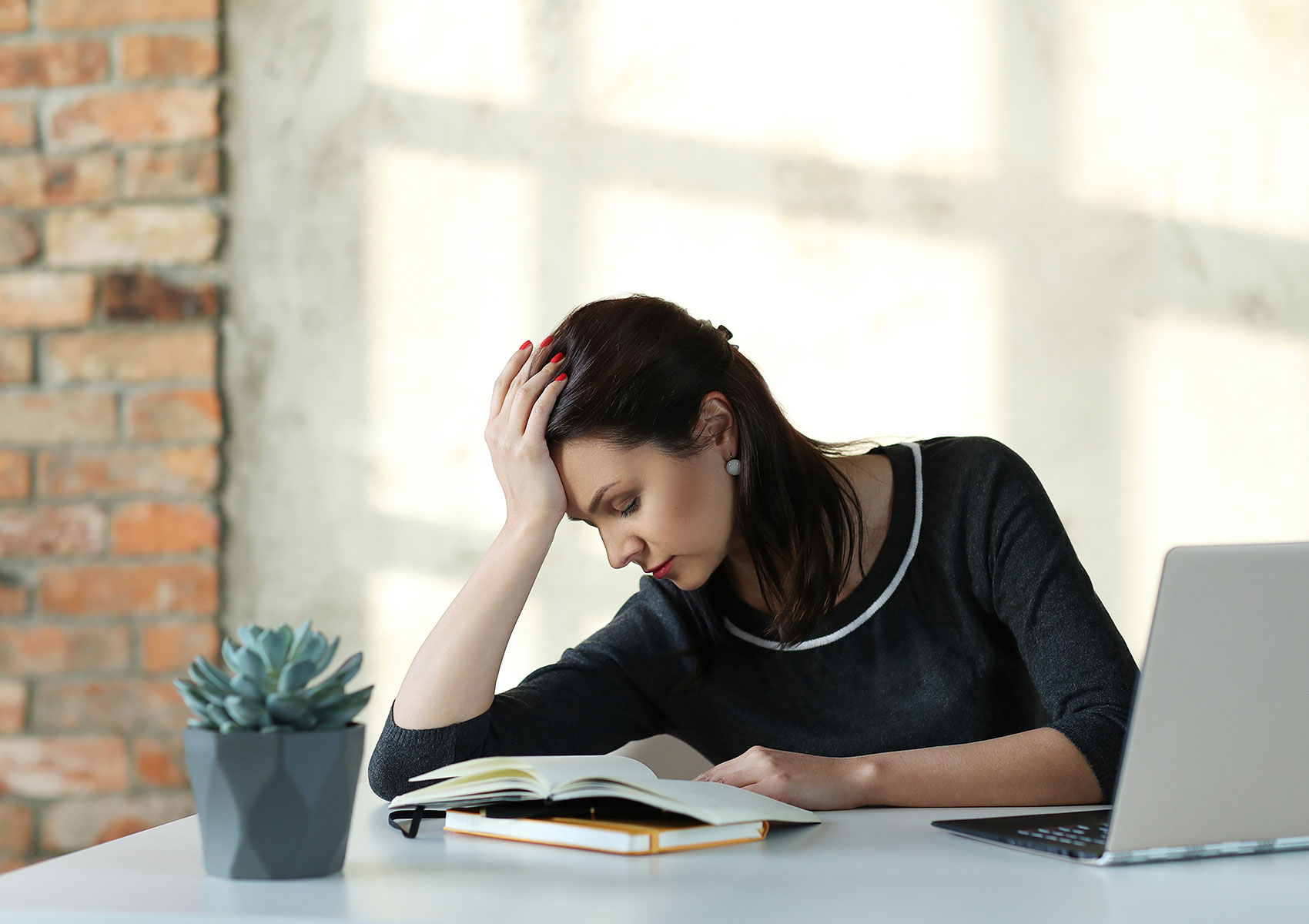Millions of people across the United States do not sleep well even if they have spent hours in bed. Poor sleep can make you feel like you did not rest enough. It can make you tired enough to fall asleep during the day, even when it is not appropriate.

What is Excessive Daytime Sleepiness?
Millions of people across the United States do not sleep well even if they have spent hours in bed. Poor sleep can make you feel like you did not rest enough. It can make you tired enough to fall asleep during the day, even when it is not appropriate.
Characterized by persistent sleepiness that comes on suddenly and often, coupled with a general lack of energy, EDS is often the result of several sleep disorders or other conditions. Identifying the potential causes of daytime sleepiness is the first step to understanding the proper treatment.
Common Signs & Symptoms Of Excessive Daytime Sleepiness
Some excessive daytime sleepiness results from not sleeping properly at night. In the pursuit of sleep, physicians wrote 60 million prescriptions for sleep medication in 2011. Over 70 million people suffer from insomnia, a disorder that makes getting enough restful sleep difficult. But medications cannot always fix issues that involve the need to sleep at times other than at night, such as sleeping during the day after working a night shift.
EDS makes it hard to get through any day without a nap, and can result in someone falling asleep during a conversation, at a meal, at work, while driving a car or operating heavy machinery. The person is overwhelmed with the need to sleep at any time of day, which can lead to dangerous situations at work or behind the wheel and awkward social interactions. While anyone can feel compelled to take a nap on a rainy day, a person with EDS cannot function without one. Even taking naps cannot completely alleviate the other symptoms or the inappropriate dozing.
Sometimes this disorder is accompanied by symptoms such as:
- Sleep paralysis, or a state between wakefulness and sleep when the body becomes immobile.
- Cataplexy, where muscle tone disappears and voluntary muscles become paralyzed.
- Hypnagogic hallucination, or a state between wakefulness and sleep when dreams seem lucid and real.
- Automatic behaviors, or a state between wakefulness and sleep when someone displays uninhibited behavior, with no memory of them when they are awake.
These symptoms are particularly prominent in the EDS disorder narcolepsy, but may present in other disorders as well.
Common Causes Of Excessive Daytime Sleepiness
Some cases of EDS are due to distinct sleep disorders, while others can be related to your behaviors or life circumstances. If you have trouble staying awake during the day, you may have:
Insomnia
Insomnia plagues over 70 million people in the U.S. It is categorized by difficulty falling asleep, waking up for periods of time at night, waking up too early, or feeling un-refreshed after sleep. In addition to other conditions, it can be caused by behavior such as watching a scary movie before bedtime, going to bed at an unusual time, or consuming caffeine or stimulant drugs too close to bedtime. The result can be daytime sleeping problems.
Mental Disorders
Mental disorders are often accompanied by insomnia and EDS. Those with bipolar disorder and seasonal affective disorder may experience interrupted sleep along with daytime fatigue. It is estimated that 80% of patients who suffer from depression also have insomnia, while 40% of chronic insomniacs suffer from a major mental disorder.
Sleep Deprivation
Sleep deprivation due to work or social obligations can lead to problems that involve unnaturally adjusting your circadian rhythms. This is often the case with shift work disorder (SWD) or jet lag.
Drug-Related Sleep Disorders
Drug-related sleep disorders can result from drug abuse or over-use of specific prescription and OTC medication.
Medical Conditions
Medical conditions such as head trauma, anemia, kidney failure, tumors, hypothyroidism or injuries to the central nervous system may result in insomnia.
Other Sleeping Disorders
Other sleeping disorders such as sleep apnea, narcolepsy, idiopathic hybrid insomnia, or restless leg syndrome contribute to improper sleeping during the night and can lead to inadvertent sleepiness during the day.
Why Seek Treatment For Excessive Daytime Sleepiness
If you find yourself falling asleep or being excessively tired during the day, you should consider this a warning sign. It may be that you need to adjust your bedtime, acknowledge stress, avoid drinking caffeinated beverages at bedtime, and avoid eating right before sleeping. If any of these issues are the problem, you should be back to normal within a couple weeks of making adjustments. However if the condition persists more than a week or two, you should seek treatment from a sleep disorder specialist. Why? Falling asleep while driving can put yourself and others at serious risk, while falling asleep during a staff meeting can cause you professional difficulties.
The first step to treating EDS is to be tested by a sleep disorder specialist. After asking you questions about your sleep and wake patterns, he or she may suggest some overnight tests at the Center for Sleep Medicine. These tests might include polysomnography, a multiple deep sleep latency test, and maintenance of wakefulness test. Additional tests may be needed to evaluate heart, lung, and liver functioning if the previous tests do not suggest a cause.
Treatment Options for Excessive Daytime Sleepiness
The treatment of EDS falls into three categories: behavior modification, over-the-counter drugs, and prescription drugs.
- Changing your bedtime, maintaining a consistent bedtime, or avoiding caffeine after lunchtime can often manage mild cases of insomnia and EDS. Behavioral approaches are effective for most sleep problems.
- OTC solutions that contain antihistamines, diphenhydramine, doxylamine, melatonin, or other herbal remedies and dietary supplements can offer a temporary solution to the problem. OTC remedies are a viable alternative to stronger, prescription sleep aids; however, many of the more natural remedies may have unknown side effects.
- Prescription solutions include a host of sedatives, mild tranquilizers, and anxiety drugs that are safe, but require doctor supervision. These medications are addictive and can have serious side effects, especially when taken with alcohol or other drugs.

Related Resources
Does Your Child Keep You Up At Night?
Sleep affects your child’s development in many important ways, including mental and social development, physical health, and emotional regulation. When a child has trouble sleeping, it limits their ability to function well during the day, disrupts the household, and is a source of stress for parents and other family members.
